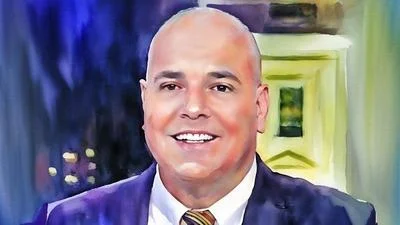Alex Adams is the director of the Idaho Department of Health and Welfare, and holds a doctorate in pharmacology. He was previously Idaho Governor Brad Little’s budget and regulatory director, and remains a key figure in shaping Idaho’s regulatory landscape, which he describes as both pioneering and pragmatic.
Idaho’s approach to regulatory oversight is deeply rooted in its legislative review process, something Adams says is essential to balancing power between the executive and legislative branches.
“For years, at the federal level, there's been talk about a [REINS] Act, where the basic premise is the executive branch promulgates regulations, but if they meet a minimum economic threshold, they have to go back to Congress for approval,” he explains. “Idaho has been a pioneer in that, literally for decades.”
The state mandates that any regulation proposed by one of its 60 agencies must go to the legislature for approval before taking effect, which is intended to ensure alignment with the intent of elected legislators.
Adams notes that about five percent of proposed regulations in Idaho are rejected each year. “There is a subset of regulations that the legislature throws out for one reason or another annually–that serves as one of those powerful checks on the executive branch,” he says.
The process, he says, keeps agencies mindful of legislative intent. “One of the things that's always in the back of the mind as an agency is how the legislature is going to respond to this,” Adams adds. “In six months, we're going to be standing in front of the legislature, justifying why this is in line with the statutory intent of the original sponsors.”
Critics of the federal REINS Act worry that it would stifle regulatory agility, but Adams counters that Idaho’s experience proves otherwise. “One thing that's really interesting to know is Idaho is a part-time legislative state,” he says. The legislature typically meets from January to March, with the first few weeks devoted solely to reviewing regulations.
“In terms of time burden, it's something our legislature has prioritized,” he emphasizes. “Most committees complete their work within about 32 calendar days.”
Adams likens the regulatory review process to the legislative process itself. “By the time legislation gets to the governor's desk, there's been this dramatic filtering process,” he explains.
In addition, legislative review of regulations ensures multiple viewpoints are heard, deterring agencies from proposing rules that may clash with legislative priorities. “By having legislative review of regulations, it rounds out the totality of feedback agencies get,” Adams says.
Adams believes that increased public input improves the regulatory process. “It's improved the business environment in our state, and stakeholder engagement,” he says. Idaho also employs a zero-based regulation approach, where rules have sunset clauses. “Once every eight years, a rule has to be reassessed,” Adams explains. The policy creates more certainty and prevents agencies from incrementally increasing regulatory stringency.
When it comes to unintended consequences of regulations, Adams shares a vivid example from his time at the Idaho Board of Pharmacy. “We used to have a requirement that the pharmacy have a solid core door,” he recalls. One business owner, who had invested in bulletproof glass doors for his pharmacy, failed an inspection because his doors weren’t solid core. “He showed up at our board building and pointed out that he had floor-to-ceiling windows right next to it that weren't addressed in the regulation,” Adams says. Recognizing the absurdity, the board revised its rules, eliminating the unnecessary red tape.
Streamlining regulations has had tangible benefits. “We got regulations from 100 pages down to 26 pages,” Adams notes. “My successor has got it down to 18 pages now, still 16 too many.” The simplified rules have attracted national companies like Amazon’s PillPack and CVS to Idaho, creating jobs and expanding pharmacy services. “What we've seen since we deregulated pharmacy is national companies relocating to our state.”
Tele-pharmacy is another innovation Adams highlights. By allowing pharmacy technicians to manage rural locations under remote supervision from a pharmacist, Idaho has brought essential healthcare services to underserved communities. “I was just at one tele-pharmacy that opened in a town that hadn't had a pharmacy in 80 years,” he says. “Now, in the throes of winter, residents don’t have to drive an hour to the nearest pharmacy.”
Idaho also became the first state to allow pharmacy technicians to administer vaccines. The decision faced criticism in 2016, but it proved prescient during the COVID-19 pandemic. “We were pilloried when we did that,” Adams says. “Then COVID hit, and the Trump administration saw what we were doing and said we need that in all 50 states.” The federal government’s emergency act authorized pharmacy technicians nationwide to administer vaccines, resulting in hundreds of millions of doses delivered. “Some of the original critics of [our policy] are now the ones monetizing pharmacy technician training vaccines,” Adams adds.
Adams underscores the importance of balancing regulatory oversight with practical business needs. He believes that regulations should prioritize clarity and simplicity. “No offense, but sometimes the worst regulations are those drafted by lawyers,” he quips. Simplifying rules not only reduces compliance costs but also encourages economic growth. “Shorter, easier-to-understand regulations don't need an army of lawyers to help you comply,” he says.
Ultimately, Adams views Idaho’s regulatory framework as a model for other states and perhaps the federal government. He credits the state’s approach with fostering innovation, economic growth, and improved public services. “By moving from regulation to statute, it's now back in the hands of elected lawmakers,” he says. “You don't have unelected individuals tinkering with the parameters and creating whiplash across administrations.” The key, Adams argues, is ensuring that regulations serve the public good without stifling progress.









